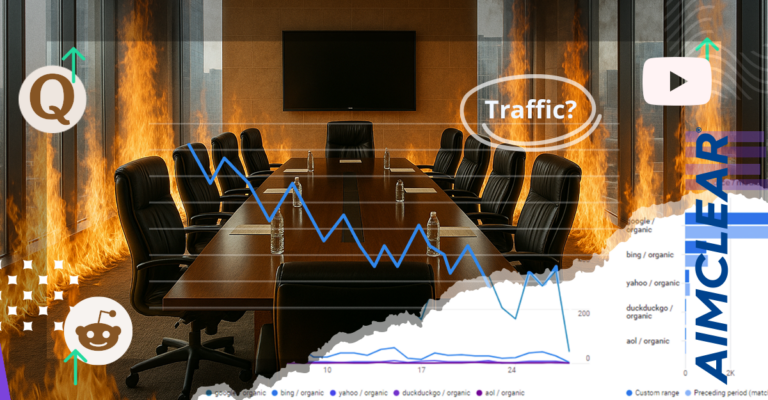More often then not, in any SEO project, the spiny issue of homepage word-count arises in the process of optimizing a client’s site. Unless the company we’re providing SEO services to is relatively small, most likely there are multiple factions invested in the homepage content. To make our task more complex interested players on the client side can include advertising agencies, PR consultants, internal Internet marketing team members, IT personal, writers, and product managers. There are often layers of conflicting needs or even politics involved. The interesting irony is that most everyone’s position is reasonable.
Players most concerned with the brand and image of a product usually want sparse text on the homepage with lots of white space available for images, flash, video, and other cool stuff. To advertising folks optimizing the homepage may mean uncluttering it and making sure the homepage has direction, intent, and a distinct call to action. IT personnel (who had total control of websites in previous generations of website development) want security, ease, and control of the technical process. All of these objectives are admirable but often boil down to conflict over control of the word-count density on the newly optimized homepage-or even arguments as to whether the SEO firm is allowed to impact the homepage at all. Who’s position should prevail? How many words should there be on the homepage?
I want the site to get higher ranking for keywords important to sales of the product being marketed. My thinking is that any website has extremely limited advertising, marketing, or PR value if no customers find it when they search.
SEO Keywords
There is a lot of misunderstanding out there. It is true. Back in the day, lacing the bottom of the homepage with SEO keywords and pumping up the meta-data was enough to put a well optimized homepage over the top to attain decent ranking. Be assured this is no longer the case. Professional SEO website design involves actualizing an understanding of known and assumed SEO attributes including page title (most important), anchor text (words used in hyperlinks), and many other on-page characteristics in addition to researching and using SEO keywords. After the all important title tag the actual written content of the page is the most important variable.
Words are Clues for the Search Engines
Words are the embodiment of sales in writing and the written content you create for you your website should contain indicators of what the page is about (obvious). You’ve probably heard that search engines look algorithmically at a wide array of on and off-page clues when ranking a page for a specific keyword including how many other websites link to you and the quality of those sites. The more highly-trafficked sites, with content related to your site, link to you the better.
When we begin a new SEO project we take in to consideration the quantity and quality of inbound links when recommending the homepage word-count. We’re a lot more accepting of a lower homepage word-count when thousands of inbound links exist already because your site has a good chance of achieving better rankings with sparser homepage copy. In some cases, where inbound links are plentiful and high quality, we’ve achieved success with word-counts as low as 80 words on the homepage.
The critical focus in optimizing your site needs to be creating enough content relevant to the product you are marketing to alert the engines that your “words” are important to any potential customer searching by relevant keywords. If you don’t have a lot of existing inbound links then it’s important to accept your fate. There need to be more words on the homepage. Think of link-building activities as seeking permission to have fewer words on your homepage.
Take an Informational Approach
We like to see a minim of 350 and up to 650 words on a homepage with a least 3 subheadings in an environment where you have not achieved significant inbound links previously. We believe that potential customers, searching for your product, are looking for information to answer the question they just typed into the search box on Google. I always recommend you answer their questions with enough information rich density to satisfy the query and attract the search engines.
The Splash Page Trap
We’ve seen those interested in a low or no word-count homepage justify the approach by calling the site’s index (first) page a splash page and proposing to place the “homepage lower in the site hierarchy. Let’s be clear. The homepage is the first page a visitor comes to in your site. Though someone might call the first page a splash page and propose that the information rich “homepage” be the second page encountered after the visitor clicks on a link or is automatically redirected, this shell game won’t be as effective.
The actual homepage of a website has the most SEO value out of the box. Though XML sitemaps (the new site submission standard) offer the opportunity to notify the search engines how important each interior page is, a “homepage” placed on the interior of a website after a splash page has no more potential for value then any other interior page. It’s not a homepage at all.
We don’t recommend a splash page unless a website has a large count of high quality inbound links already or you put enough words on the splash page. Don’t fall into the splash page trap to justify having little text on the homepage.








